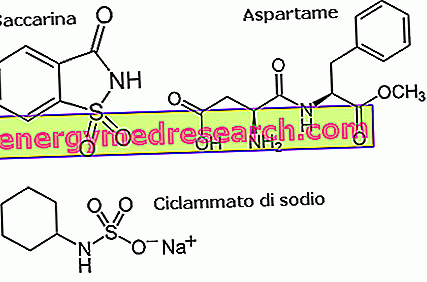By Dr. Giancarlo Monteforte
After the synthesis of saccharin (1879) synthetic sweeteners have been the focus of numerous studies aimed at clarifying their metabolism and possible toxicity.
Older sweeteners are the most consumed and most studied:
- Aspartame
- Saccharin
- cyclamates

Toxicity
The potential toxicity of synthetic sweeteners has been discussed for some time, many researchers have investigated and still investigate the link between sweeteners and carcinogenesis.
Laboratory animals treated with high doses of sweeteners have developed tumors:
- Lymphomas
- Leukemia
- Bladder tumors
- Brain tumors
Although this link has not yet been clearly demonstrated in humans, consumers are very concerned about the quality and safety of food products containing sweeteners.
A 1977 study published in the prestigious Lancet magazine positively correlated bladder cancer risk with saccharin consumption.
Subsequently, epidemiological studies conducted on the human population have not shown an increased risk of cancer of the lower urinary tract (bladder) in consumers of artificial sweeteners.
Metabolic effects
Recently the researchers' attention has shifted to the metabolic effects of synthetic sweeteners. These, in laboratory animals, have caused weight gains and body composition changes.
It has been shown that "light" beverages and artificial sweeteners influence glycemic homeostasis by increasing incretin levels when taken after glucose loading. This data, which results in an altered response to sugars, could have important consequences for both diabetics and healthy subjects following a low-calorie diet.
Appetite control
It is also being investigated that edulcolating agents could increase appetite and lead to a paradoxical weight gain. This observation, like oncogenesis, is also not supported by constant and reproducible data.
In summary:
- Oncogenesis and sweeteners: relationship observed in animals but not sufficiently clarified in humans
- Glycemic homeostasis and sweeteners: recent studies show that sweeteners are not metabolically inert
- Appetite control and sweeteners: relationship observed in humans but not yet confirmed
Bibliography
Lancet. 1977 Sep 17; 2 (8038): 578-81.



